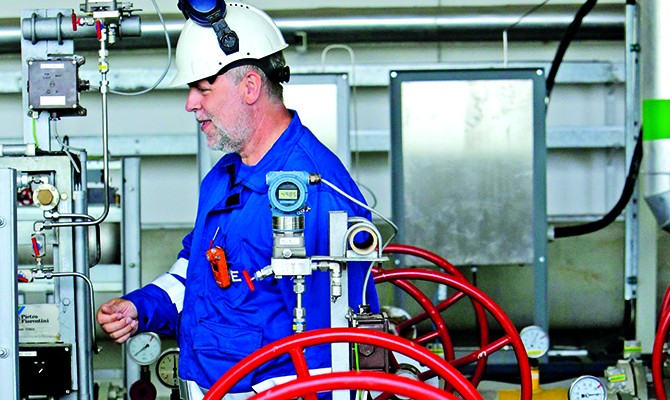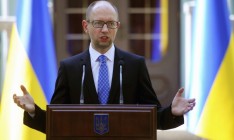Business
negotiationsNegative outlook. It appears that Ukraine, Russia and the EU will not able to resolve the gas issue

Representatives of the European Union will try to find a compromise in the gas dispute between Ukraine and Russia at the new round of talks scheduled to be held in Berlin. Resolution of the conflict is critical for all parties involved, though experts predict that the issue will not be settled.
Attempt #2
While the first round of negotiations on resolving the issue of Russian gas supplies lasted from early May to mid-June this year, the parties involved failed to agree on the most contentious issues – namely, the price Ukraine will pay Russia’s monopoly Gazprom for gas and how it will repay its debts for received supplies.
Back then the Russian gas monopoly stated that Ukraine’s debt was US $5.3 bn, consisting of unpaid supplies in Q4 2013, when the price of gas was US $382 per 1,000 cubic m, as well as unpaid deliveries since April 2014, when Gazprom raised the cost of fuel to US $485 per 1,000 cubic m. At the same time, in the end of May Ukraine paid US $268.5 per 1,000 cubic m for the gas received in the first quarter of 2014 having transferred US $0.8 bn to Gazprom.
The parties are heading into the second round of talks with practically the same policies they held to during the first meeting. The position of official Moscow is straightforward: Kyiv must pay off its gas debts and in return the Russian government will offer a discount of US $100. Pursuant to the contract between Gazprom and Naftogaz signed in 2009, the price of gas is US $485 per 1,000 cu m. In its turn, official Kyiv wants to pay a fair market price – namely, the price charged to European consumers – and is ready to repay the accumulated debts to Gazprom on the basis of this price.
Major doubts
European mediators are entering the second round of talks with a proposal to set temporary gas prices that will remain in effect as long as Ukraine and Russia seek a solution to the disputes in the Stockholm Court of Arbitration to which the two sides resorted after the first round of negotiations failed. This implies setting the price of gas in the summer at the rate of US $320 per 1,000 cu m and during the peak consumption periods – at the rate of US $385 per 1,000 cu m.
EU Commissioner for Energy Guenther Oettinger, who consulted both sides on the eve of the talks, insisted that a compromise be found by October.
However, Kyiv and Moscow show their stubbornness and do not want to back off from their positions. On the eve of the talks in Berlin Minister of Energy and Coal Industry of Ukraine Yuriy Prodan said that he doubted any successful outcome. “The Russian side simply refuses to negotiate,” he said this Tuesday at the meeting of the Cabinet of Ministers in Kyiv. Russia did not send out any signals about watering down of its policy.
Experts doubt the successful outcome of the negotiations. “The result will be the same as in the previous talks. Oettinger will push the sides to a compromise, while Kyiv and Moscow will stand behind their positions,” says Co-chair of the Energy Strategies Foundation Dmytro Marunych.
Partner at the RusEnergy Consulting Agency Mykhailo Krutikhin believes that today there is no reason to assume that the negotiations will be successful: to resolve the conflict Gazprom and Naftogaz should sign a new contract on the terms that Gazprom offers to European consumers. “The current contract contains a number of outdated regulations which have not been observed for a long time: “take or pay”, the ban on re-export of gas. But signing of the new contract would mean that Gazprom agreed to make concessions, but for it a win-win situation in which all sides agree to make certain concessions and everybody wins is unacceptable. Russian leaders are psychologically unprepared to make concessions, as they will feel that they are losers in the game,” says Krutikhin.
He believes all sides will lose from the absence of a compromise: Ukraine will not receive the Russian fuel it desperately needs, Europeans are threatened with interruptions in gas supplies this winter, Russia’s budget loses money from termination of deliveries to Ukraine and Gazprom may have to deal with complaints of Europeans for whom it will not be able to fulfill the obligations of gas supply this winter. If Russia fails to fulfill its obligations to supply gas to Europe, it will be overburdened with complaints and lawsuits. “Ukraine has always fulfilled its obligations for the transit of Russian gas and Gazprom will have no gas to ensure stable supplies to Europe. Therefore, Gazprom will be to blame,” said the expert.






 of the agreement of syndication with Financial Times Limited are strictly prohibited. Use of materials which refers to France-Presse, Reuters, Interfax-Ukraine, Ukrainian News, UNIAN agencies is strictly prohibited. Materials marked
of the agreement of syndication with Financial Times Limited are strictly prohibited. Use of materials which refers to France-Presse, Reuters, Interfax-Ukraine, Ukrainian News, UNIAN agencies is strictly prohibited. Materials marked  are published as advertisements.
are published as advertisements.